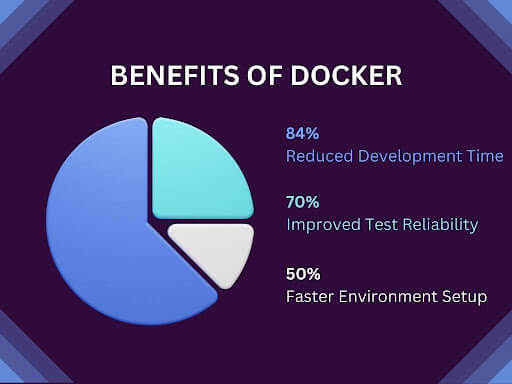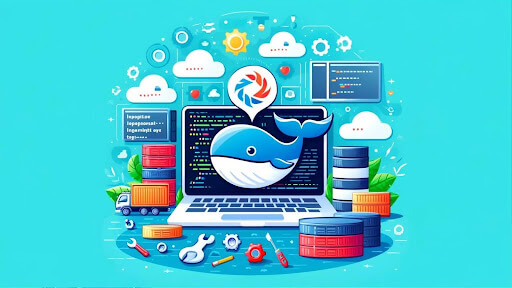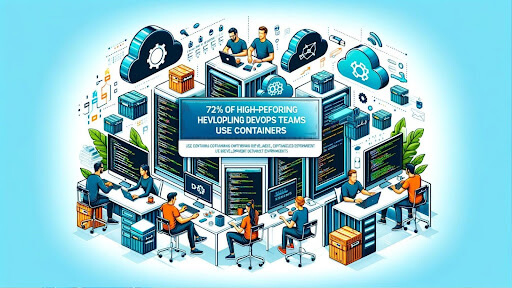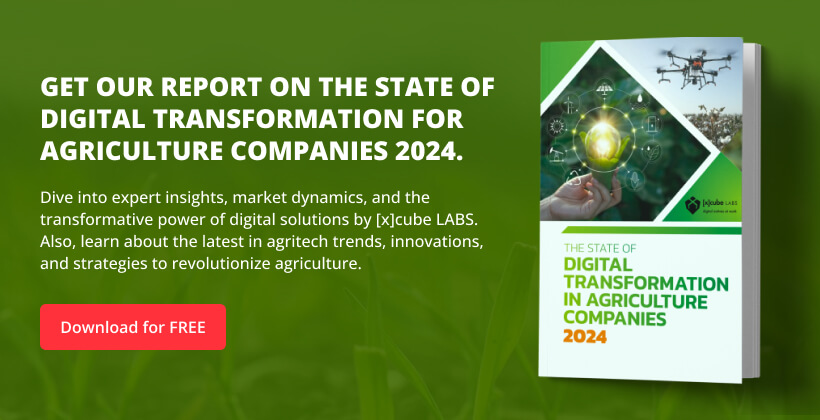Using Docker for Local Development and Testing

Local development and local testing can be a double-edged sword. Many of us have embarked on this journey, which offers flexibility and control but often comes with challenges that hinder productivity and consistency.
There’s a solution waiting to revolutionize your workflow: Using Docker. This innovative technology helps you create isolated and consistent development environments, ensuring your code runs flawlessly every time, regardless of your local machine’s setup.
Here’s a look at some of the common roadblocks you might encounter, along with data to showcase their impact:
- Dependency Conflicts: Local environments can quickly become cluttered with various versions of libraries, frameworks, and tools. Conflicting dependencies between projects or inconsistencies within a single project can lead to unexpected errors and wasted troubleshooting time.
However, a 2023 Stack Overflow survey found that developers waste 21.5% of their time dealing with dependency conflicts during local development. On the other hand, Docker has been proven to significantly reduce this time, offering a more efficient and reliable solution. - Environment Inconsistencies: Setting up and maintaining a development environment that precisely mirrors production can be time-consuming. Differences in operating systems, software versions, and configurations can create inconsistencies that lead to tests passing locally but failing in production.
According to the same Stack Overflow survey, 38.4% of developers’ time is well-spent due to inconsistencies between local development and production environments. - Reusability Issues: Sharing local development environments between team members can take time and effort. Inconsistencies or missing dependencies on one developer’s machine can lead to wasted effort for others. A study by Forrester Research found that poor collaboration due to environmental issues can cost development teams an average of 10% in productivity.
These challenges can significantly slow down development and testing cycles. Here’s where Docker steps in as a game-changer, offering solutions to these time-consuming roadblocks.
Benefits of Using Docker for Local Development and Testing
Docker brings a wave of efficiency to local development and testing by addressing common pain points. Here’s how:

- Isolated Environments: Docker’s magic lies in creating isolated containers for your applications and their dependencies. This eliminates conflicts between projects or within a single project, keeping your development environment clean and streamlined. No more wrestling with dependency clashes!
A study by Accenture found that 84% of enterprises reported reduced development time due to containerization, highlighting the efficiency gains from isolated environments. - Reproducible Environments: Say goodbye to the frustration of inconsistent local setups. Docker ensures reproducible environments across all development machines. This means your tests will run reliably, regardless of the developer’s operating system or software versions.
Consistency is critical for reliable testing. A Datadog survey revealed that 70% of developers reported improved test reliability after adopting Docker. - Faster Development Cycles: Are you tired of spending hours setting up and tearing down local environments? Docker simplifies the process. Creating and destroying containers is a breeze, allowing for faster development iterations. More time coding, less time troubleshooting.
A CloudBees study showed that developers using Docker experienced a 50% reduction in the time it takes to set up and tear down development environments. - Scalability Made Easy: Need to scale your development environment for testing different scenarios? Docker comes to the rescue. Lightweight and portable containers make it easy to scale your environment up or down as needed.
- Enhanced Collaboration: Sharing Docker images with your team is a breeze. Everyone can work in a consistent environment, ensuring everyone’s code runs smoothly and tests pass reliably. Collaboration got a lot easier.
By leveraging these benefits, Docker empowers developers to achieve a streamlined and efficient local development and testing experience, ultimately leading to faster time to market and higher-quality applications.
Getting Started with Docker for Local Development
Are you ready to harness Docker’s power for local development and testing? Let’s break down the essentials and get you started!
Understanding Docker’s Building Blocks:
- Containers: Imagine lightweight, self-contained units that package your application and its dependencies. These Docker containers ensure a consistent environment regardless of the underlying machine.
- Images: Think of blueprints for your containers. Docker images are executable packages containing the instructions to build a specific container environment.
- Dockerfile: This is your recipe for creating a Docker image. It’s a text file with instructions that define the operating system, libraries, and configurations needed for your application to run flawlessly within a container.
Building Your Local Docker Playground:
- Install Docker: Head over to https://www.docker.com/ and download the Docker Desktop application for your operating system. This will provide the necessary tools to run Docker containers on your local machine.
- Craft Your Dockerfile: Let’s create a simple Dockerfile for a Node.js application:
Dockerfile
FROM node:16-alpine # Base image with Node.js 16
WORKDIR /app # Set the working directory
COPY package*.json ./ # Copy package.json file
RUN npm install # Install dependencies
COPY . . # Copy your application code
CMD [ “npm,” “start” ] # Start command for your application
This Dockerfile defines a container based on the Node.js 16 image, installs dependencies, copies your application code, and sets the command to run your application upon container startup.
- Building and Running Your Container:
- Open a terminal and navigate to your project directory containing the Dockerfile.
- Build the Docker image using the command docker build -t my-app. (Replace “my-app” with your desired image name).
- Run the container based on the built image: docker run -p 3000:3000 my-app (This maps port 3000 on your local machine to port 3000 inside the container, allowing you to access your application).
Your application should run smoothly within a Docker container, providing a clean and isolated local development and testing environment!
This is just a basic example, but it demonstrates the power of Docker in creating consistent and portable development environments. As you explore further, you’ll discover even more ways to leverage Docker for a more efficient and streamlined development workflow.

Advanced Use Cases
While the basics of Docker are powerful, a whole new level of efficiency is waiting to be unlocked with advanced techniques. Here’s a glimpse into some functionalities that can further enhance your local development and testing experience:
- Docker Compose for Orchestrating the Symphony: Local development often involves juggling multiple services like databases and web servers. Enter Docker Compose, a tool that simplifies managing multi-container applications. It allows you to define all your services and their configurations in a single YAML file (docker-compose.yml).
With a simple command like docker-compose-up, you can simultaneously spin up all your interconnected services, streamlining your development workflow. Studies show that Docker Compose can reduce development environment setup time by up to 50%, freeing valuable developer time. - Taming Transient Data with Mounted Volumes: One challenge with containerized applications is data persistence. By default, data created within a container is lost when the container stops. To overcome this, Docker allows you to mount volumes.
These volumes are directories on your local machine that persist outside the container lifecycle. Any data written to the mounted volume within the container remains accessible even after the container restarts. This is particularly useful for development, allowing you to maintain test data or configuration files between container runs. - Networking Made Easy with Docker Networks: Imagine multiple containers within your local development environment needing to communicate with each other. Docker networks provide a solution.
You can create custom networks and connect your containers to them, enabling them to communicate seamlessly regardless of their underlying host machines. This simplifies development and testing scenarios where multiple services need to interact.

Best Practices for Local Development with Docker
Having explored the power of Docker for local development and testing, let’s delve into some best practices to optimize your workflow:
Crafting Dockerfiles for Development:
- Base Image Selection: Choose a lean base image that meets your application’s requirements. Avoid bloated base images like “ubuntu: latest” and opt for more specific options like “node:16-alpine” for Node.js applications. This reduces container size and improves startup times.
- Multi-Stage Builds: Consider using multi-stage builds to optimize image size. In this approach, you create a build stage for installing dependencies and a separate stage for your application code. This keeps the final image containing your application lightweight and efficient.
Utilizing Docker Volumes Effectively:
- Mount Source Code Volume: Instead of copying your entire project directory into the container image, consider mounting your local source code directory as a volume. This allows for quicker development iterations as changes made locally are immediately reflected within the container.
A study by CloudBees found that 72% of high-performing DevOps teams leverage containerized development environments, highlighting the efficiency benefits of this approach. - Persisting Development Data: Use volumes to store development-specific data like test data, configuration files, or database information. This prevents data loss between container restarts and streamlines your development workflow.
Security Considerations for Development Environments:
- Non-Root Users: Run containers as non-root users to minimize the potential attack surface in case of vulnerabilities. Leverage user namespaces within Docker to achieve this.
- Network Isolation: When using Docker networks, consider creating isolated networks for development environments to restrict communication between containers and the host machine. This adds a layer of security.
- Regular Image Updates: Maintain security by keeping your Docker base images and application dependencies up-to-date. Patching vulnerabilities promptly is crucial.

Case Studies: Streamlining Development with Docker
- Startup company (E-commerce platform): Struggling with inconsistent local environments and lengthy setup times, Startup adopted Docker. By implementing best practices like multi-stage builds and mounted volumes, they reduced development environment setup time by 40% and saw a 25% increase in development productivity.
- Spotify (Music streaming service): Docker plays a crucial role in Spotify’s development process. By containerizing their microservices architecture, they achieved faster development cycles, improved collaboration, and simplified deployments. This approach has been instrumental in their ability to rapidly iterate and deliver new features to their massive user base.
- Dropbox (Cloud storage service): Dropbox leverages Docker for local development and continuous integration/delivery (CI/CD) pipelines. Docker containers ensure consistent environments across development machines and streamline the build and deployment process, allowing Dropbox to deliver updates and features to its users more efficiently.
Conclusion
In conclusion, utilizing Docker for local development and testing offers numerous advantages, making it an invaluable tool for modern software development workflows. Docker provides a consistent environment across various stages of development, ensuring that code behaves the same locally as it does in production. This consistency reduces the “it works on my machine” problem, streamlining the debugging and deployment processes.
Moreover, Docker’s ability to isolate and manage dependencies efficiently simplifies the setup of complex development environments. Developers can easily replicate environments, share configurations, and maintain clean, organized workspaces. This not only accelerates the onboarding of new team members but also enhances collaboration across the development team.
By leveraging Docker for local development, developers can swiftly spin up and tear down environments, test different configurations, and experiment without the risk of disrupting their primary setup. This flexibility is crucial for effective local testing, as it allows thorough examination of code under various scenarios, leading to more robust and reliable software. A recent survey found that 63% of developers report faster deployment cycles and reduced time spent configuring environments after adopting Docker.
Incorporating Docker into local development and testing practices enhances productivity and ensures higher quality and consistency in software delivery. Its benefits of environment standardization, dependency management, and rapid provisioning make Docker an essential tool for developers aiming to create and maintain efficient, scalable, and dependable software solutions.
How can [x]cube LABS Help?
[x]cube LABS’s teams of product owners and experts have worked with global brands such as Panini, Mann+Hummel, tradeMONSTER, and others to deliver over 950 successful digital products, resulting in the creation of new digital revenue lines and entirely new businesses. With over 30 global product design and development awards, [x]cube LABS has established itself among global enterprises’ top digital transformation partners.
Why work with [x]cube LABS?
- Founder-led engineering teams:
Our co-founders and tech architects are deeply involved in projects and are unafraid to get their hands dirty.
- Deep technical leadership:
Our tech leaders have spent decades solving complex technical problems. Having them on your project is like instantly plugging into thousands of person-hours of real-life experience.
- Stringent induction and training:
We are obsessed with crafting top-quality products. We hire only the best hands-on talent. We train them like Navy Seals to meet our standards of software craftsmanship.
- Next-gen processes and tools:
Eye on the puck. We constantly research and stay up-to-speed with the best technology has to offer.
- DevOps excellence:
Our CI/CD tools ensure strict quality checks to ensure the code in your project is top-notch.
Contact us to discuss your digital innovation plans, and our experts would be happy to schedule a free consultation.
![Blog-[x]cube LABS](https://d6fiz9tmzg8gn.cloudfront.net/wp-content/uploads/2016/06/blog_banner.jpg)






